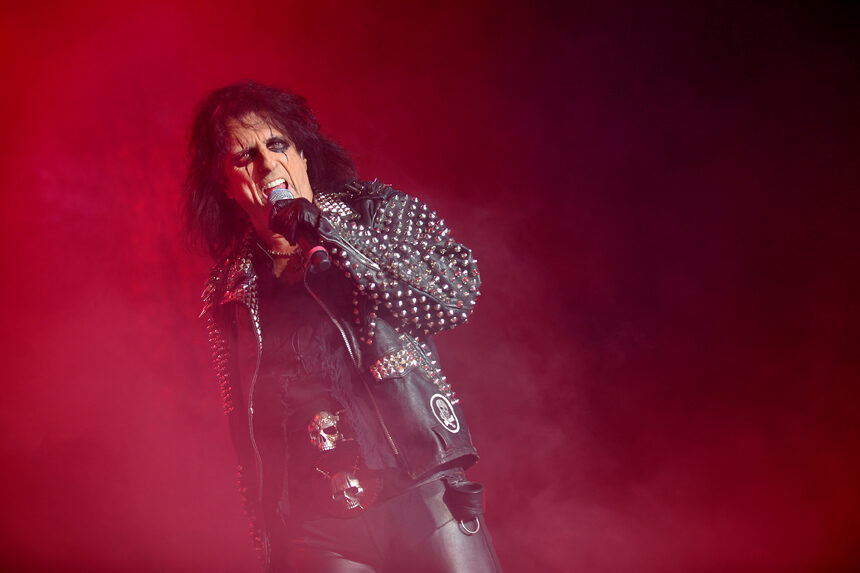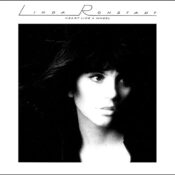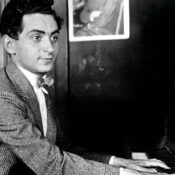He’s been called the Godfather of Shock Rock. He’s also been called a threat to society. His wife calls him Vinnie. But for decades, Vincent Furnier has been known around the world as rock icon Alice Cooper. Alice turned 75 this week, and in that spirit, here are 7.5 things you should know one of popular music’s greatest showmen.
1. Not in the Family Business
Vincent Damon Furnier was born in Detroit on February 4, 1948. His father, Ether Moroni Furnier, was, ironically enough, an evangelist from The Church of Jesus Christ. Vincent was bitten by the rock and roll bug early on; by 16, he’d formed a band, The Earwigs, for a school talent show. The band would run through a series of names, including The Spiders and Nazz, before settling on something much more familiar: Alice Cooper.
2. The Boys in the Band
“Reflected” was the first single by the Alice Cooper Band (Uploaded to YouTube by Official Alice Cooper)
Vincent’s bandmates were all initially fellow members of the school cross-country team. They included Glen Buxton (guitar), Dennis Dunaway (bass), John Tatum (rhythm guitar), and John Speer (drums). In 1966, while they were still The Spiders, classmate Michael Bruce replaced Tatum. The following year, Neal Smith replaced Speer on drums. The band had become Nazz when they discovered that Todd Rundgren’s band was already using Nazz. They decided that they wanted a moniker that would be ironically wholesome, given the dark nature of the music. Aiming to sound like somebody’s old aunt, the guys settled on Alice Cooper as the name of the band.
3. The Singer’s Name Is Alice?
“Be My Lover” by Alice Cooper (Uploaded to YouTube by Official Alice Cooper)
Vincent hadn’t intended on adopting Alice Cooper as his stage name. However, given his stage make-up (initially inspired by Whatever Happened to Baby Jane?) and theatricality, early audiences just assumed that the lead singer was Alice. The band even parodied this notion in the 1971 song “Be My Lover” with the lines, “She asked me why/the singer’s name was Alice/I said listen baby/you really wouldn’t understand.” Vincent eventually accepted it to the point that he legally changed his name to Alice Cooper. In a 2017 interview, he said that only his wife of 46 years, Sheryl, and Keith Richards of The Rolling Stones still call him Vinnie.
4. Shepherded to Zappa
At a 1968 show, legendary manager Shep Gordon saw the band and realized that they might thrive at Frank Zappa’s label. The group would release their first three albums on Zappa’s Straight Records, and Zappa’s girl-group, The GTOs, had a huge hand in helping the band perfect the make-up and frequently feminine clothing they wore on stage. That look fed into their developing a “shock rock” persona, but nothing sold the shock as much as an accident with a chicken during the 1969 Toronto Rock ‘n’ Roll Revival festival concert. Somehow, a chicken made its way to the stage. Detroit-born city kid Alice tossed the bird, expecting it to fly. Instead, it dropped into the audience, who killed the luckless bird. Within days, rumors and headlines in both Canada and the U.S. suggested that Alice had killed or sacrificed the bird and drunk its blood. When Alice explained the actual incident to Zappa, the shrewd rocker, recognizing the value of an urban legend, told Alice, “Well, whatever you do, don’t tell anyone you didn’t do it.”
5. Eighteen Goes 21
Alice Cooper performing “I’m Eighteen” in 1990 (Uploaded to YouTube by Official Alice Cooper)
The band finally had their first hit song off of their third album, Love It to Death. “I’m Eighteen” made it to #21 on the charts in early 1971. The attention led Warner Bros. Records to buy out their Zappa contract and gave them a whole new level of public awareness. Love It was produced by Bob Ezrin, and he would become an important part of the group’s sonic architecture over the next many years. The band’s popularity would continue to boom, and their gothic stage shows with simulated executions and other theatricality made them wildly popular with audiences and widely hated by conservative groups and critics.
“School’s Out” broke into the Top Ten in 1972, lifting the band even higher. “No More Mr. Nice Guy” followed the next year. With solid radio play and sold out shows, Alice Cooper had transitioned from just another band to legitimate stars. However, various pressures and internal conflicts caused the band to split up and Alice (as in the former Vincent) would continue on as a solo artist. He continued to work with Ezrin and immediately established himself on his own with the Top 20 ballad “Only Women Bleed” from his 1975 solo album, Welcome to My Nightmare.
6. Rough Times Forge a Heavy Metal Hero
“Poison” (Uploaded to YouTube by Official Alice Cooper)
Alice continued to be massively popular in the 1970s, but he began to feel the weight of battles with alcohol and cocaine. He also nearly got divorced, though he and Sheryl reconciled and he finally achieved sobriety. As Alice worked on new music in the mid-1980s, he was now surrounded by a number of ascendant metals bands that idolized him and, in many cases, would seek him as a collaborator. Though he flirted with a few near comebacks, Alice was re-established as a potent musical force with his hit 1989 album, Trash. Produced by Desmond Child, famous for his work with huge acts like Bon Jovi, Trash featured Top Ten hit “Poison” and beloved rocker “House of Fire.” Alice’s allies came out in force for the record, as it featured guest appearances by the likes of Kip Winger, Aerosmith, Jon Bon Jovi and Richie Sambora, and Toto’s Steve Lukather. Though his projects haven’t charted as highly in the years since, Trash ensured that Alice would remain a consistent force in popular culture.
7. Reunited at the Rock and Roll Hall of Fame
Alice Cooper on their Rock and Roll Hall of Fame Induction (Uploaded to YouTube by Rolling Stone)
Both Alice the dude and Alice the band were inducted into the Rock and Roll Hall of Fame by their spiritual successor Rob Zombie at the 2011 ceremony. Though Glen Buxton had passed away, Bruce, Dunaway, and Smith were present, spoke, and performed with Alice (and guest Steve Hunter, who played Buxton’s parts). Speaking to Rolling Stone, Alice said, “We all did go to the same high school together, and we were all on the track team, and it was pretty cool that guys that knew each other before the band ended up going that far.”
7.5 Constant Collaborator
Alice Cooper in Wayne’s World (Uploaded to YouTube by Movieclips)
How do you make half a point? In the case of Alice Cooper, it’s because he’s established himself as a frequent collaborator, guest artist, guest star (in TV and film), and tour mate. Alice has guested on albums by everyone from Guns ‘N’ Roses to Twisted Sister and recruited rock royalty like Paul McCartney to appear on his projects. He’s turned up in films like Wayne’s World, dropped in on Hollywood Squares, and has toured with acts like the aforementioned Rob Zombie and metal legends Iron Maiden. One of his most critically acclaimed guest appearances happened in 2018 when he sang the part of Herod in NBC’s live Easter Sunday broadcast of Andrew Lloyd Webber’s Jesus Christ Superstar Live in Concert.
At 75, Alice Cooper is still recording, still touring, still playing golf (yes, really), and still managing to shock us from time to time. He may only be Vinnie to a couple of people, but he certainly made a name that will live on in annals of rock. It turns out that the singer’s name was Alice, and that’s all we needed to understand.
Become a Saturday Evening Post member and enjoy unlimited access. Subscribe now




Comments
Finally after 51 years of being a fan I get to see your show at Ridgefield, WA with Rob Zombie! I grew up with you Alice! Generations did. It will be like 1972 seeing you again! My Mother played Bing Crosby and I played No More Mr Nice Guy! We live you Alice!!
Vince I remember sneaking out of church as a kid with my cousin Larry Watson and you. As I recall Jimmy Jones as well.
My parents were in your parents wedding.
Keep rollin’ Alice!
“Poison” is among my favorites. Alice Cooper puts on a great show. I recommend for anyone to see. However a lot of people forget ballads like “You and Me,” “I Never Cry,” “How You Gonna See Me Now,” and “Only Women Bleed.” Each have messages that yearn to be heard. I personally see Alice as one of the “Good Guys of Rock and Roll” and one of the very best.
Alice Cooper is one of my favorite favorites; thank you for this wonderful feature! Unfortunately, I’ve never seen him in concert. I bought his albums when they were new (well before CD’s) and they’re all classics as far as I’m concerned. Love that ’30s/’70s fusion greatest hits album cover with Jean Harlow herself no less, exiting the car.
He experimented and created great music that was never ‘noise’ even at it’s hardest, kind of like Deep Purple. One example is the ending of ‘School’s Out’ from ’72. Unlike anything ever before or since. ‘Billion Dollar Babies’ from ’73, amazing. I love the links you included here. ‘Poison’ also, from many years later.
Great interview with Cooper from 2011, even though the R&R HOF has largely been crap for a long time, and Rolling Stone itself irrelevant. It should be an honor to be inducted, and sad it no longer is, but nearly everything is sad now. (It was nice to see The Car’s final performance in 2018). Cooper has always remained true to himself, his music, his fans, and I wish him many more birthdays. Keep on rockin’ dude, for sure!